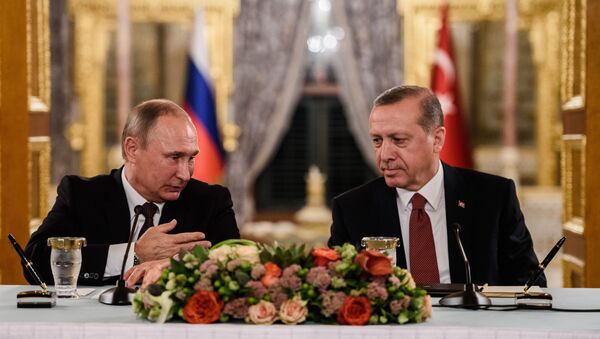Dr. Özden Zeynep Oktav, a Professor of International Relations at the Istanbul Medeniyet University, told Radio Sputnik that the assassination was aimed to "undermine Turkish rapprochement with Russia" and to sabotage the attempts by Moscow and Ankara to help resolve the Syrian crisis.
"Mr Putin also supported Erdogan during the July coup attempt, therefore Erdogan and Putin are very much willing to cooperate with each other in Syria despite many divergencies," she said.
Dr Oktav pointed out that the assassination is in fact unlikely to have anything to do with the recently ended battle for Aleppo, and that it is hardly a coincidence that the Russian ambassador was murdered on the eve of a trilateral meeting in Moscow between the foreign ministers of Russia, Turkey and Iran on Syria. Nevertheless, she added, the killer’s efforts won’t be able to stop the peace process in the war-torn country.
"I believe that the peace process will go forward because these three countries are the regional countries that are badly affected by the Syrian crisis. Regardless of the many clashing interests these three countries are very much determined to find a solution," she stated.
Dr Oktav also remarked that apparently Karlov’s assassin managed to achieve an opposite result and bring the two countries closer instead of alienating them, as the Turkish public was outraged by the ambassador’s murder.
"And on public level I sincerely want to tell you this created a great sensation among the Turkish people, it increased sympathy towards Russia among the Turkish people in Turkey," she said, adding that Karlov was a "precious diplomat" who was "very successful in bringing the two countries together."



